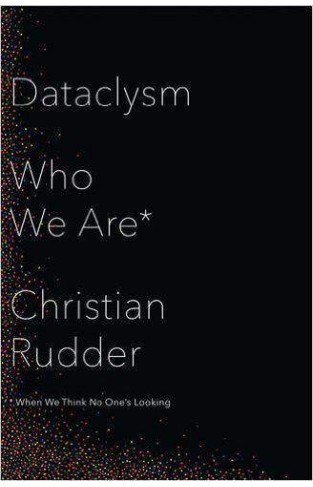Dataclysm: Who We are (When We Think No One's Looking)
Dataclysm: Who We are (When We Think No One's Looking)
By:
-
Rs 1,317.50
- Rs 1,550.00
- Ex Tax :Rs 1,317.50
- Price in loyalty points :1473
You saved Rs 232.50.
Due to constant currency fluctuation, prices are subject to change with or without notice.
What is the secret to a stable marriage? How many gay people are still in the closet? Do we truly live in a postracial society? Has Twitter made us dumber? These are just a few of the questions Christian Rudder answers in Dataclysm, a smart, funny, irreverent look at how we act when we think no one's looking.
For centuries we've relied on polling or small-scale lab experiments to study human behavior. Today a new approach is possible. As we live more of our lives online, researchers can finally observe us directly, in vast numbers and without filters. Data scientists can quantify the formerly unquantifiable and show with unprecedented precision how we fight, how we age, how we love, and how we change. Our personal data has been used to spy on us, hire and fire us, and sell us stuff we don't need. InDataclysm, Rudder uses it to show us who we are as people.
He reveals how Facebook "likes" can predict, with surprising accuracy, a person's sexual orientation and even intelligence; how attractive women receive exponentially more job interview requests; and why you have to have haters to be hot. He charts the rise and fall of America's most reviled word through Google Search and examines the new dynamics of collaborative rage on Twitter. He shows how people express themselves, both privately and publicly. What is the least Asian thing you can say? Do people bathe more in Vermont or New Jersey? What do black women think about Simon & Garfunkel? Hint: They don't think about Simon & Garfunkel. Rudder also tracks human migration in real time, showing how groups of people move from certain small towns to the same big cities across the globe. And he grapples with the challenge of maintaining privacy in a world where these explorations are possible.












